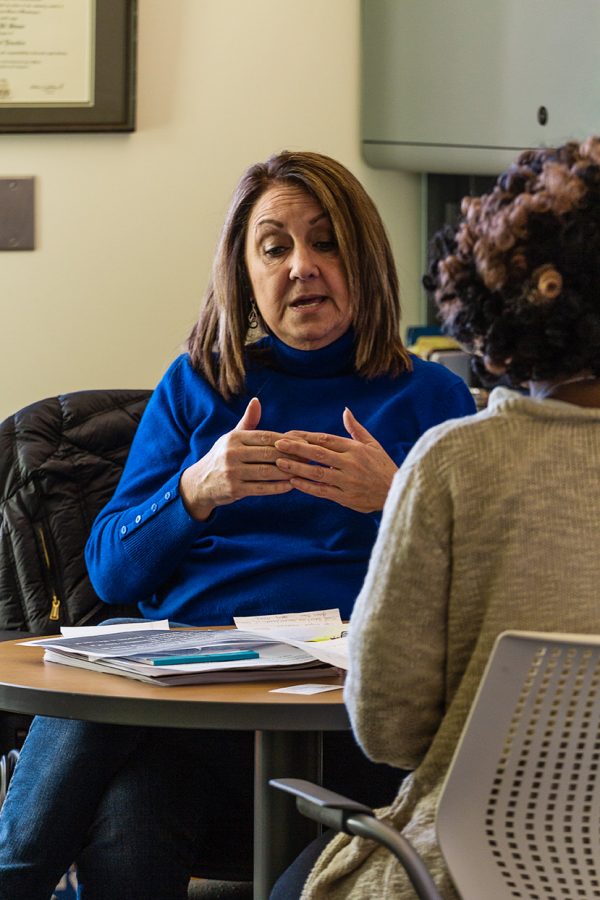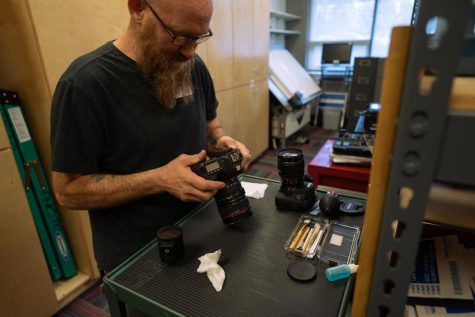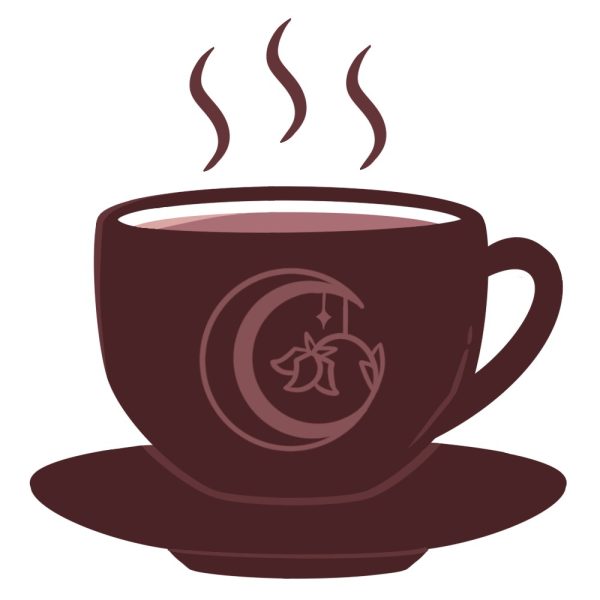Stress in College Students
Tips to manage stress and available resources to help on campus
Faculty counselor, Deanna Skinner, explains different types of stress to The Clipper in her office.
Stress in college students is common and can be unhealthy. According to a 2008 mental health study conducted by the Associated Press and mtvU, eight in 10 college students say in the past three months they have sometimes or frequently experienced stress in their daily lives.
Jean Giudice, a faculty counselor at EvCC, defines stress as, “any change that a human has to adapt to.” Stress in college students happens for many reasons such as financial struggles, bad relationships, death in the family, or transitioning to college life away from home. But it is the way stress is perceived that can have a positive or negative effect. “If we are interpreting the stressful events as threats or dangerous, then we are going to experience it like that, physiologically and mentally a lot more stressful,” said Giudice. She added that our thoughts and beliefs are important to how we interpret the events in our lives and what we are going through.
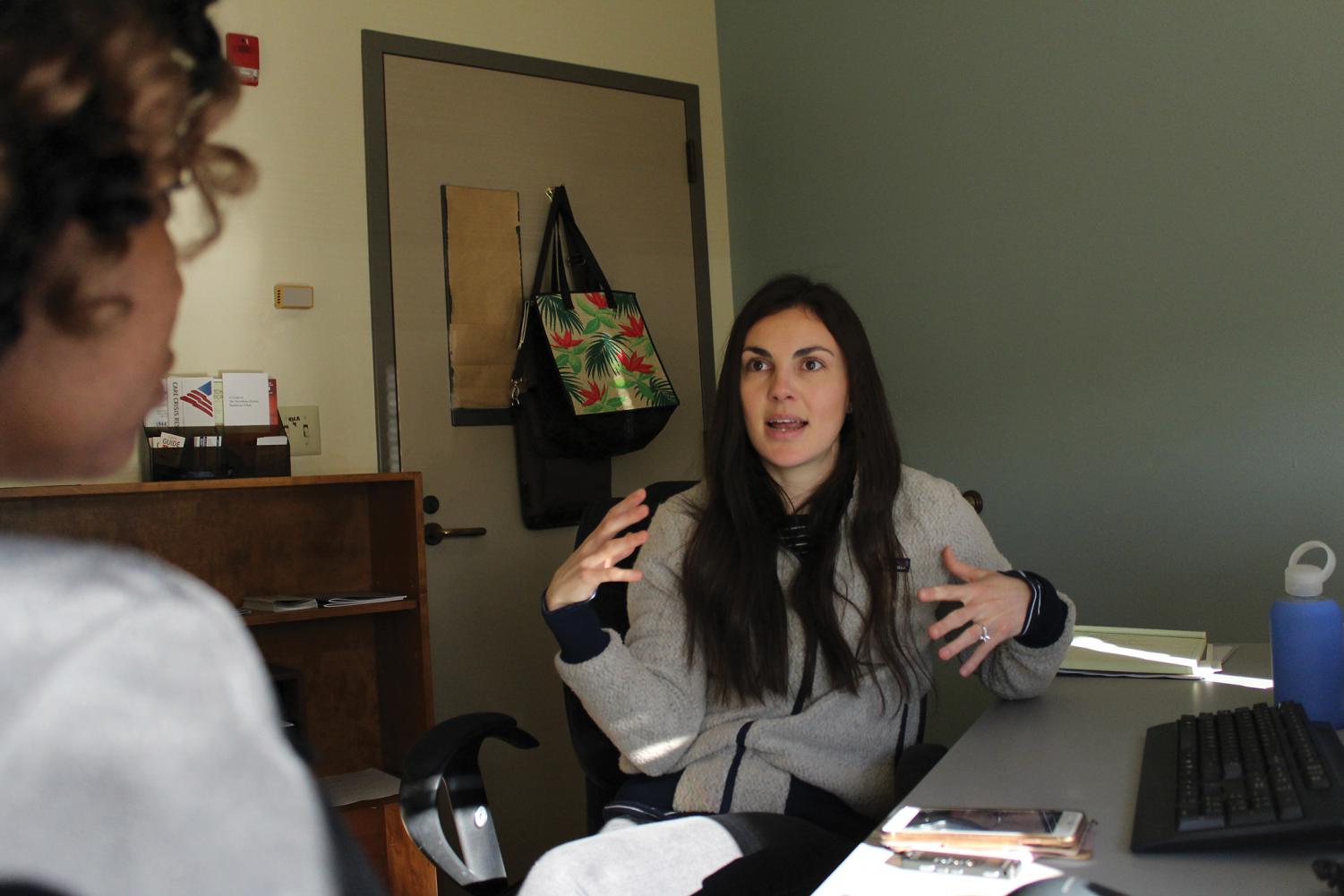
Jean Giudice, associate faculty and counselor, demonstrates ways to manage and reduce stress.
College can be demanding and challenging, which can lead to stress. Working, paying for college and the intense pressure of maintaining good grades can have a negative effect on our physical and mental health. It can affect a student’s wellbeing and academic success which can lead to bad decisions like dropping out of school prematurely.
Symptoms of stress include headaches, mood swings, agitation, feeling overwhelmed, low self-esteem, low energy, insomnia, chest pain, rapid heartbeat, aches, and difficulty relaxing.
Even though stress can be harmful, not all stress is bad and there are ways of managing stress while attending college.
According to Deanna Skinner, faculty counselor at EvCC, there are three different types of stress: acute, episodic and chronic stress. Students exhibit all three, but acute stress which is often caused by reactive thinking, negative thoughts or upcoming situations is the most common one students face and it is of short duration. Bringing on a lot of stress, she said, is what leads to acute stress. In turn, this can lead to headaches, irritability and unhealthy lifestyles. “It can lead college students to unhealthy coping strategy skills like alcohol, drugs, and smoking,” Skinner says. However, the good stress, “eustress,” is normal psychological stress that is beneficial to performance, health, emotional well-being and is “what motivates us to get things done like reaching a deadline, completing an assignment or preparing for a job interview,” said Skinner.
With help from family, friends and campus resources, stress levels can be managed to prevent it from getting worse. Skinner advised that students should focus on self-care, eating right, exercising, getting good sleep and engaging in positive thoughts. She said it is helpful to “Reframe our thinking or thoughts about how we cope with a situation,” and “Spend less time with the people that drain us and more time with the people that fill us up with the good stuff.” She added that as beings, we need to connect with others and support one another. “Think about that time you’ve been there as a support person for someone else,” said Skinner.
Furthermore, Giudice advised to connect with counselors, advisors, teachers and to make use of resources available on campus. “Talk to family and friends if you are in need of help or going through stress,” said Guidice.
For students who are feeling stressed or need help, the EvCC Counseling and Students Success department has counselors in Graywolf Hall, Whitehorse Hall, Liberty Hall and Parks Student Union. They offer confidential and professional services that are free to students. The number to call for these services is 425-388-9263, or students can walk into the main office located on the third floor of the Parks Student Union in room 335 to make appointments. They also have walk-in appointments available during slow times based on the availability of counselors.
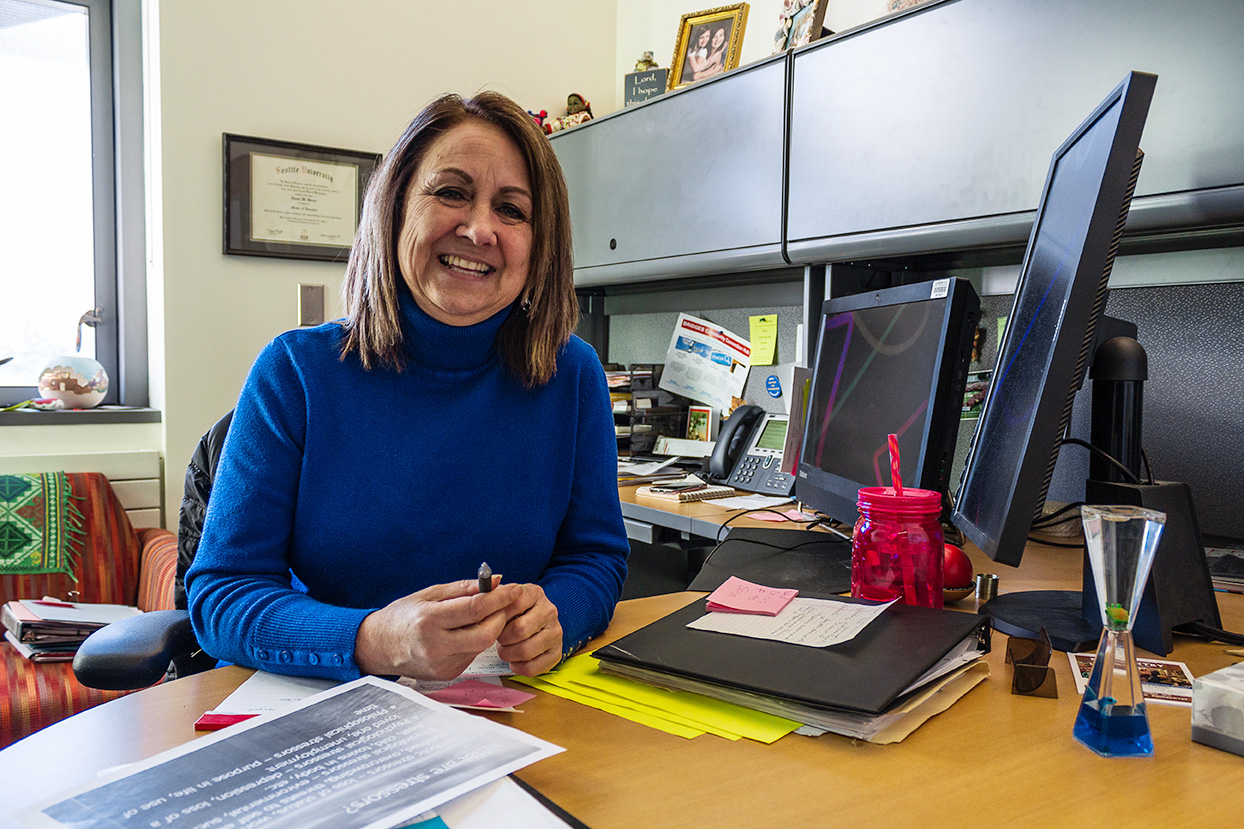
Deanna Skinner, Counseling and Student Success faculty, helps advise students coping with stress and anxiety.
There is a new Center of Wellness in Graywolf Hall room 370, for students to de-stress and connect with one another. A Stress workshop organized by Jean Giudice and Deanna Skinner is scheduled to take place on Feb. 6 from 12:30 p.m. to 2 p.m. at the center.

What interests you about journalism?
Generally, everything about journalism interests me. But the thing that interests me the most is, as a journalist...

What are you doing when you aren't at The Clipper?
I can be found haunting the various live music venues in almost all major cities between Bellingham...

Where does The Clipper fit into your long-term goals?
My two years of editing experience have been amazingly formative as a leader and professional,...

